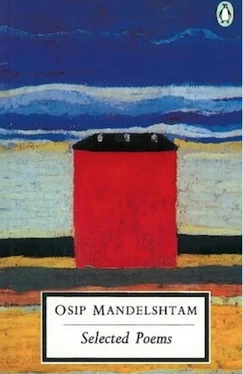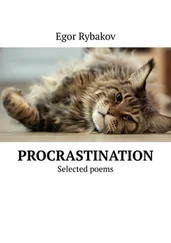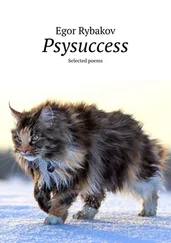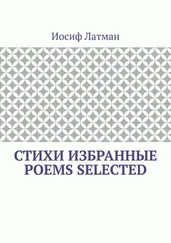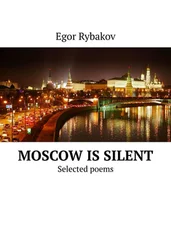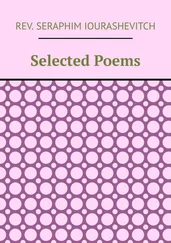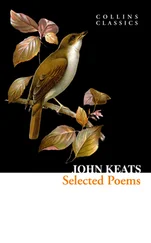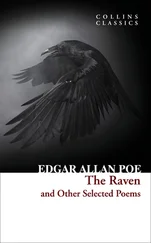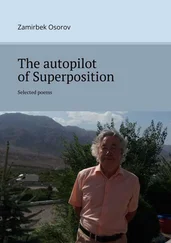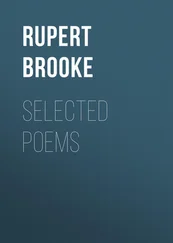Osip Mandelshtam - Selected Poems
Здесь есть возможность читать онлайн «Osip Mandelshtam - Selected Poems» весь текст электронной книги совершенно бесплатно (целиком полную версию без сокращений). В некоторых случаях можно слушать аудио, скачать через торрент в формате fb2 и присутствует краткое содержание. Город: London, Год выпуска: 1991, ISBN: 1991, Издательство: Penguin Books, Жанр: Поэзия, на английском языке. Описание произведения, (предисловие) а так же отзывы посетителей доступны на портале библиотеки ЛибКат.
- Название:Selected Poems
- Автор:
- Издательство:Penguin Books
- Жанр:
- Год:1991
- Город:London
- ISBN:978-0-14-196539-0
- Рейтинг книги:4 / 5. Голосов: 1
-
Избранное:Добавить в избранное
- Отзывы:
-
Ваша оценка:
- 80
- 1
- 2
- 3
- 4
- 5
Selected Poems: краткое содержание, описание и аннотация
Предлагаем к чтению аннотацию, описание, краткое содержание или предисловие (зависит от того, что написал сам автор книги «Selected Poems»). Если вы не нашли необходимую информацию о книге — напишите в комментариях, мы постараемся отыскать её.
Selected Poems — читать онлайн бесплатно полную книгу (весь текст) целиком
Ниже представлен текст книги, разбитый по страницам. Система сохранения места последней прочитанной страницы, позволяет с удобством читать онлайн бесплатно книгу «Selected Poems», без необходимости каждый раз заново искать на чём Вы остановились. Поставьте закладку, и сможете в любой момент перейти на страницу, на которой закончили чтение.
Интервал:
Закладка:
Osip Mandelshtam
SELECTED POEMS
Selected and Translated
by James Greene
Forewords by Nadezhda Mandelshtam
and Donald Davie
Introduction by Donald Rayfield
To Ron Holmes, Maxwell Shorter and Antony Wood
Fine fingers quiver;
A fragile body breathes:
A boat sliding across
Fathomless silent seas.
Few live for the sake of eternity.
But if the passing moment makes you anxious
Your lot is terror and your house precarious!
And alone, infinity, I read
Your primer:
Your wild leafless herbal –
Logarithm-table of prodigious roots.
Like poppies, your eyebrows
Open up a dangerous path.
Why am I in love like a janissary
With this tiny volatile red –
The pitiful crescent of your lips?
Angelic criminal, cheeky schoolboy,
Alongside the Gothic a villain:
He spat on the spider-like law –
Incomparable François Villon.
Aortas fill with blood.
A murmur resounds through the ranks:
– I was born in ’94,
I was born in ’92…
And, clutching the worn-out year of my birth,
Herded wholesale with the herd,
I whisper through anaemic lips:
I was born in the night of January the second and third
In the unreliable year
Of eighteen-ninety something or other,
And the centuries surround me with fire.
Foreword by Nadezhda Mandelshtam
I think that the most difficult task in the world is the translation of verses, particularly of a true poet, in whose verses there is no discrepancy between the form and the content (or meaning) – both of them always new and but a bit different (with no great disparity between them) – and where the ego of the poet is always strikingly felt. Marina Tsvetayeva said she could write as Mandelshtam did but that she didn’t want to. She was a great poet but she was greatly mistaken. She could be influenced by Mayakovsky and Pasternak and remain Tsvetayeva because they were innovators and therefore easily aped. But Mandelshtam composed verses in tradition , which is far more difficult to imitate.
Mr Robert Lowell’s translations are very free; Mr Paul Celan’s into German also free. But both are a very far cry from the original text. As far as I know the translations of Mr Greene are the best I ever saw. I can’t give my opinion about the Italian translations, as I don’t know Italian as well as English, French and German. As for Elsa Triolet’s, they are as naïve and vulgar as she was.
Mandelshtam said that the contents are squeezed from the form as water from a sponge. [1] See Translator’s Preface, page xx , for discussion of Mandelshtam’s statement in its original context.
If the sponge is dry, there would be no moisture at all. So, to render the content – which Mr Greene has succeeded in doing – is to give, in a way, the form or harmony, the harmony which can’t be rendered in translation, the harmony which is quite simple and at the same time mysteriously complicated. Poetry is a mystery.
Foreword by Donald Davie
Of Mandelshtam’s Octets , Robert Chandler has said that ‘the informing energy of the poem stems from, is a part of, the universal impulse to form, which leads equally to the creation of a petal or a cupola, the pattern of a group of sailing-boats or a poem.’ And Mr Chandler may be right. Yet as I worked at the Octets [2] Donald Davie’s version of Mandelshtam’s long poem The Octets was published in Agenda , vol. 14, no. 2, 1976.
it seemed to me on the contrary that Mandelshtam was distinguishing one kind of form from another, and was celebrating only those forms that are ‘bent in’, arced, the form of a foetus or a cradle, specifically not the open-ended and discontinuous mere ‘pattern’ (rather than ‘form’) that a group of sailing-boats may fall into.
I stress this because I am inclined to see in it the clue to what is distinctive about this poet, and what is distinctively daunting about the challenge he presents to his translators. If I am right, Mandelshtam’s poems themselves yearn towards, and achieve, forms that are ‘bent in’, rounded, sounding a full bell-note. Moreover, because what the poems say is at one with the forms they find for the saying, we see why it is that, as Clarence Brown tells us, for Mandelshtam ‘cognition’ is always ‘recognition’ – re -cognition, a return upon itself, a ‘coming round again’.
And nothing else, so far as I can see, will enable us to reconcile Anna Akhmatova’s firm declaration, ‘He had no poetic forerunners,’ with his widow’s no less firm admonition: ‘Mandelshtam… unlike innovators such as Mayakovsky and Pasternak… composed verses in tradition , which is far more difficult to imitate.’ What sort of a poet can this be, who is ‘traditional’ and yet has ‘no poetic forerunners’? We solve this riddle by saying that in his techniques Mandelshtam was indeed unprecedented, yet the techniques were made to serve a form – why not say, simply, a beauty ? – that rejoiced in calling upon every precedent one might think of, from Homer to Ovid, to the builders of Santa Sophia, to Dante and Ariosto and Racine. For it is true, surely: the sort of form to which Mandelshtam vows himself alike in nature and in art, the form of the bent-in and the rounded-upon-itself, is the most ancient and constant of all European understandings of the beautiful – it is what long ago recognized in the circle the image of perfection. This profoundly traditional strain and aspiration in Mandelshtam explains why the Russia of his lifetime is seldom imaged directly in his poetry, and why, when it is so imaged, the image is overshadowed by others from ancient Greece or from Italy; it explains why domes and cupolas and shells (whether whorled or scalloped) appear in his poetry so often; and it explains why the hackneyed figures of the sky as a dome and a vault, and of the sea as curved round the earth’s curve, appear in that poetry so insistently and with such otherwise unexplained potency. If we were to call Mandelshtam ‘classical’, this is what we might mean, or what we ought to mean. And nothing is further from what may reasonably be seen as the characteristic endeavour of the Western European and American of this century, in all the arts – that is to say, the finding of beauty in the discontinuous and the asymmetrical, the open-ended and indeed the adventitious.
Just here arises the peculiarly extreme difficulty of translating Mandelshtam into English. Before James Greene’s, the most readable and accomplished translation we had was by W. S. Merwin, done in collaboration with Clarence Brown. But this was, necessarily and properly, an American translation; a translation, that’s to say, into that one of the twentieth-century idioms which is, and has been ever since Walt Whitman, and even in such an untypical American as Pound, pre-eminently vowed to the open-ended and the discontinuous. Yet Mandelshtam is the most ‘European’ of all Russian poets since Pushkin. How could Merwin have succeeded? Yet he did – to the extent that he does indeed bring over, for a public that has not and cannot have any immediate access to the Mediterranean fountains of European consciousness, as much of Mandelshtam as can survive that oceanic passage. Here however was a chance for that one of the English-speaking idioms which
Читать дальшеИнтервал:
Закладка:
Похожие книги на «Selected Poems»
Представляем Вашему вниманию похожие книги на «Selected Poems» списком для выбора. Мы отобрали схожую по названию и смыслу литературу в надежде предоставить читателям больше вариантов отыскать новые, интересные, ещё непрочитанные произведения.
Обсуждение, отзывы о книге «Selected Poems» и просто собственные мнения читателей. Оставьте ваши комментарии, напишите, что Вы думаете о произведении, его смысле или главных героях. Укажите что конкретно понравилось, а что нет, и почему Вы так считаете.
